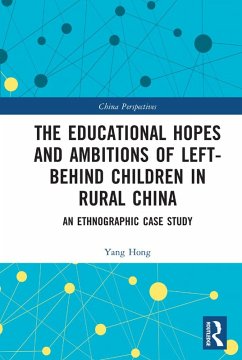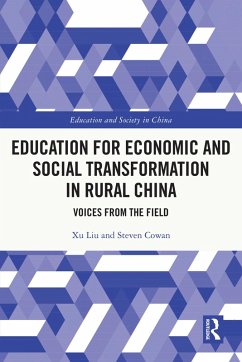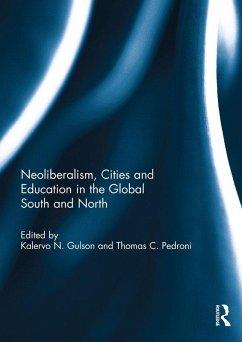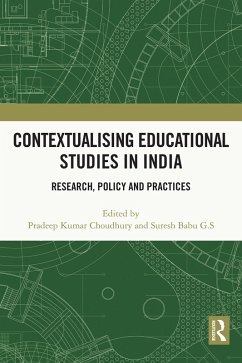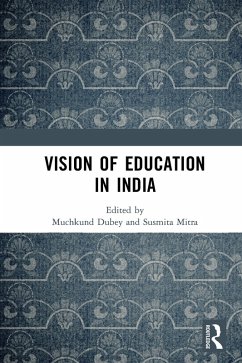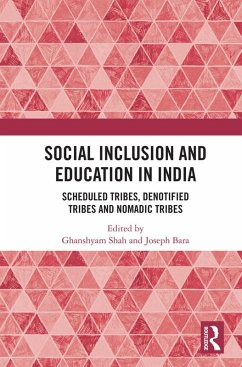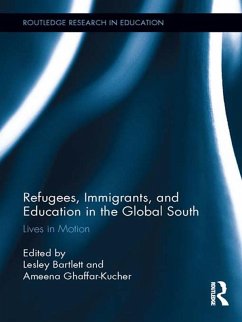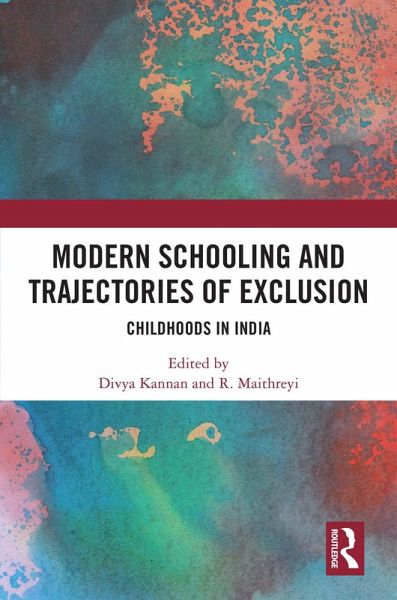
Modern Schooling and Trajectories of Exclusion (eBook, ePUB)
Childhoods in India
Redaktion: Kannan, Divya; Maithreyi, R.
Versandkostenfrei!
Sofort per Download lieferbar
38,95 €
inkl. MwSt.
Weitere Ausgaben:

PAYBACK Punkte
19 °P sammeln!
A timely enquiry into the disjuncture between schooling and society, this book aims to examine the specific spatialities and temporalities of modern schooling through which non-normative childhoods are constructed as the 'provincial other'.A large body of critical scholarship has engaged with the ways in which modern schooling draws upon certain situated, normative ideals of child development and is uneasy in its attempts to accommodate childhoods that are situated outside of this normative framework. The COVID-19 pandemic, in fact, was a further reminder of how schooling, in its current form,...
A timely enquiry into the disjuncture between schooling and society, this book aims to examine the specific spatialities and temporalities of modern schooling through which non-normative childhoods are constructed as the 'provincial other'.
A large body of critical scholarship has engaged with the ways in which modern schooling draws upon certain situated, normative ideals of child development and is uneasy in its attempts to accommodate childhoods that are situated outside of this normative framework. The COVID-19 pandemic, in fact, was a further reminder of how schooling, in its current form, is limited in its abilities to address childhoods that spatio-temporally disrupt the assumptions of the 'normal' and 'stable'. Together, the authors of this edited volume examine the ways in which modern schooling, 'excludes', despite set policies for inclusion, and how 'provincialized' children respond to this. Cutting across a range of disciplines from history and anthropology to sociology and childhood studies, statistics and demography, and a range of research methodologies, from archival to ethnographic, the chapters draw upon these various disciplines in unpacking the structures of modern schooling.
Modern Schooling and Trajectories of Exclusion will be a key resource for academics, researchers, and advanced students of education, sociology, research methods, childhood studies and social sciences. The chapters included in this book were originally published as a special issue of Children's Geographies.
A large body of critical scholarship has engaged with the ways in which modern schooling draws upon certain situated, normative ideals of child development and is uneasy in its attempts to accommodate childhoods that are situated outside of this normative framework. The COVID-19 pandemic, in fact, was a further reminder of how schooling, in its current form, is limited in its abilities to address childhoods that spatio-temporally disrupt the assumptions of the 'normal' and 'stable'. Together, the authors of this edited volume examine the ways in which modern schooling, 'excludes', despite set policies for inclusion, and how 'provincialized' children respond to this. Cutting across a range of disciplines from history and anthropology to sociology and childhood studies, statistics and demography, and a range of research methodologies, from archival to ethnographic, the chapters draw upon these various disciplines in unpacking the structures of modern schooling.
Modern Schooling and Trajectories of Exclusion will be a key resource for academics, researchers, and advanced students of education, sociology, research methods, childhood studies and social sciences. The chapters included in this book were originally published as a special issue of Children's Geographies.
Dieser Download kann aus rechtlichen Gründen nur mit Rechnungsadresse in A, B, BG, CY, CZ, D, DK, EW, E, FIN, F, GR, HR, H, IRL, I, LT, L, LR, M, NL, PL, P, R, S, SLO, SK ausgeliefert werden.






